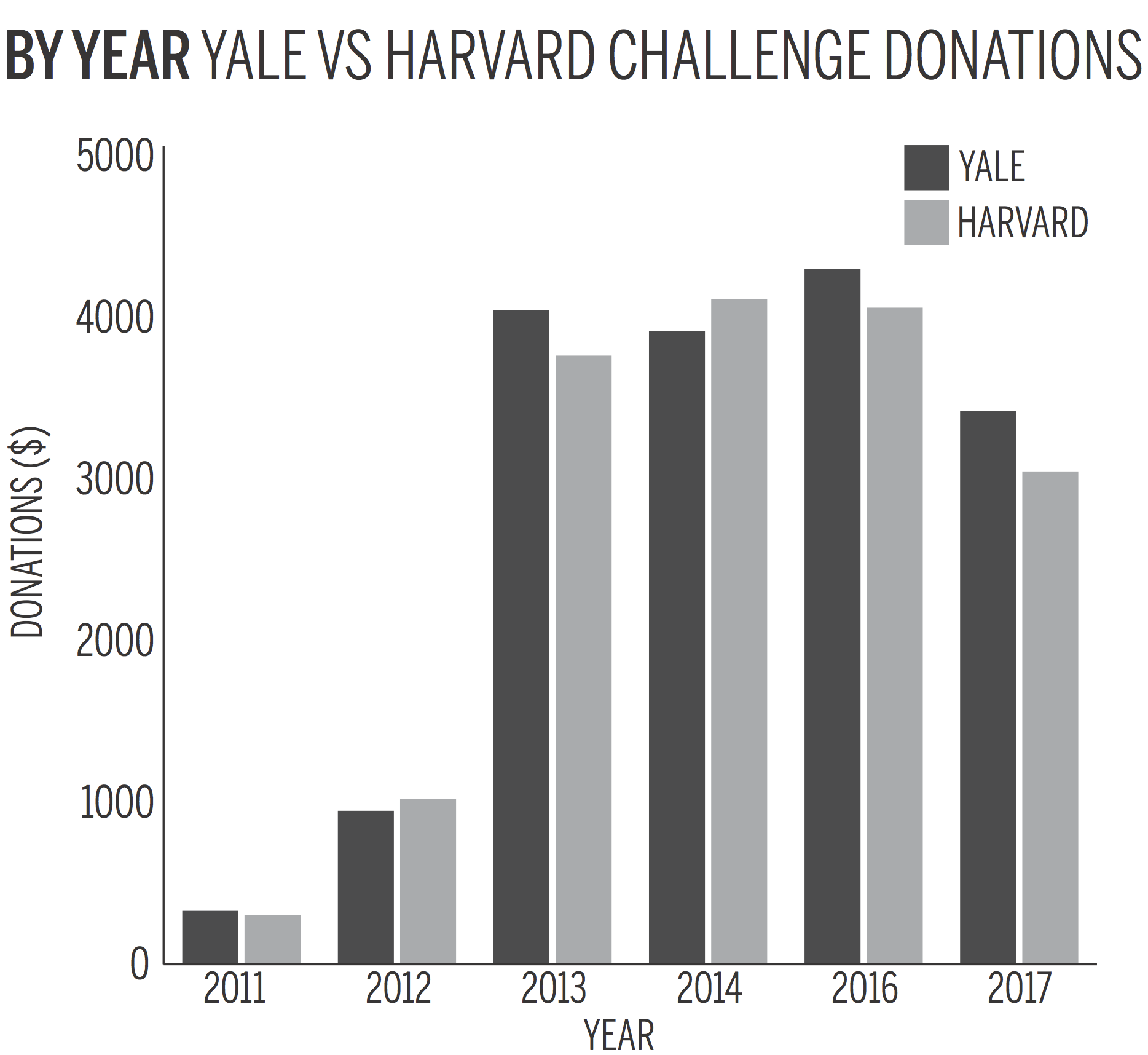
The Yale football team’s comprehensive victory over Harvard was not the University’s only defeat of the Crimson this month. In the sixth and final Yale vs. Harvard Challenge, an annual challenge between the two schools to see which can attract the most donors to its alumni fund over the course of the challenge, Yale triumphed over its Massachusetts rival.
This year, 3,380 people donated to Yale’s fund during the challenge, which ran for the week leading up to The Game, compared to Harvard’s 3,012. Since the challenge began in 2011, Yale has won four times and Harvard twice. For Jocelyn Kane, managing director of the Yale Alumni Fund, which organizes the challenges alongside The Harvard College Fund, Yale’s victory did not come as a surprise.
“We were confident that Yale would win on and off the field this year,” Kane said. “The football team had a fantastic season, and over 1,400 Yale College Alumni Fund volunteers were hard at work reaching out to their classmates to encourage them to participate in the challenge.”
The challenge was created to increase awareness of the annual funds and other fundraising programs for young alumni at both universities. Only graduating classes from 2007 to 2011 could take part in the challenge during its first year. In its second, the challenge expanded to include classes of 1998 to 2012, and starting in its third year, it was opened to all alumni at both schools. During the challenge’s fourth year, Yale alumni raised over $1 million for the fund.
In the fall of 2015, Yale and Harvard agreed to cancel the challenge due to the intense national scrutiny of the racial controversies happening on Yale’s campus. Still, the 2016 challenge saw the highest number of participants at Yale, and the school emerged victorious with 4,250 donors compared to Harvard’s 4,013.
Because Yale College has fewer alumni than Harvard College, the true number of alumni participants at Yale was multiplied each year by 1.36 to level the playing field, Kane said. The challenge had no minimum donation, and in the fiscal year 2017, 62 percent of donors gave $250 or less over the course of the challenge, according to its website.
Kane said the challenge will not continue in future years because Harvard decided not to continue administering it on its campus. Yale will offer a new challenge next year “that will continue to engage [Yale’s] volunteers and donors alike,” according to the Yale vs. Harvard Challenge’s website. Kane said the fund has not yet formulated the plan for the new challenge.
Andrew Walker ’93, a member of Yale Development Council, said he thought such challenges were a good way to ramp up donations, as they focused donors on a specific time frame and cause.
“With many people having a lot going on in their life, general solicitations can be put off or forgotten, while the challenges provide a deadline for the gift and a need to make a decision in the immediate future,” Walker said. “Also, providing a challenge against Harvard around the time of the Game perhaps spurs alumni’s competitive nature and makes them a little more inclined to donate. I don’t really know exactly what brought Yale to win … but I would like to think that alumni recognize the important role the Alumni Fund plays for the University.”
The first Yale-Harvard football game took place on Nov. 13, 1875.
Anastasiia Posnova | anastasiia.posnova@yale.edu







